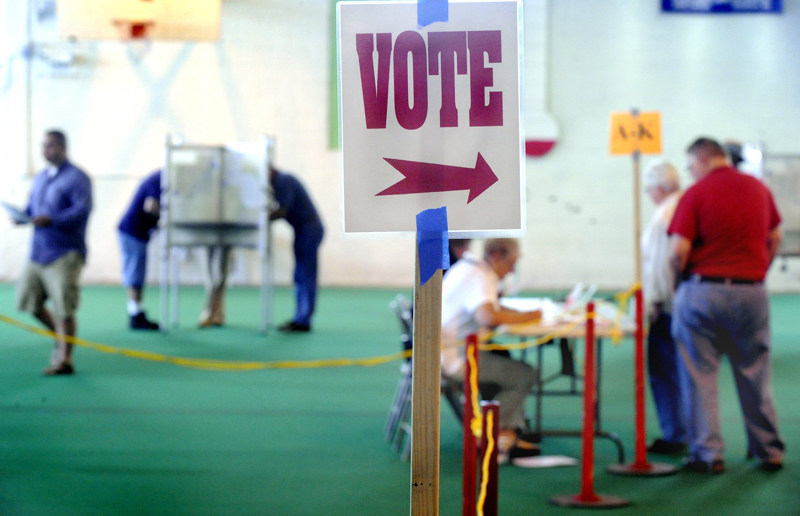Let’s start by acknowledging that Maine’s Clean Election system, approved by voters in 1996, has been generally well-received by the public and the candidates for state office who have used it.
It might be fair to say, in fact, that the system has enabled, and in some cases encouraged, individuals to seek elective office who otherwise might not have done so because the financial demands of campaigning would have been beyond their reach.
To the extent that the Clean Election law has given us qualified candidates or officeholders who might have been shut out of the system without public funding, the system must be rated a success.
But it isn’t perfect and there’s no reason to take the position that the law as currently structured is the only way to accomplish its worthwhile goals.
A glaring and immediate problem with the law is the provision that allows publicly financed candidates to receive matching funds when they are outspent by opponents whose campaigns are privately funded.
That portion of the law was declared unconstitutional in June by the U.S. Supreme Court, which ruled in a 5-4 decision that the matching funds policy violates the free speech rights of privately financed candidates.
The Maine Commission on Governmental Ethics and Election Practices, which administers the Clean Election law, responded to that ruling by proposing two possible solutions for consideration by the Legislature.
One plan would establish a set amount of funding for candidates seeking election to the House ($7,716) and the Senate ($33,617).
The second proposal would replace the now-illegal system of matching funds with a provision under which candidates could get additional money through a process similar to the way they qualify for public funding in the first place — by collecting enough $5 individual contributions to trigger an infusion of state funding.
Frankly, we’re not sure how the second plan complies with the ban on “matching funds,” but we’ll leave that analysis to lawmakers and their lawyers. Our main concern with both proposals is that they look like stopgap fixes that might adequately deal with the Supreme Court’s ruling but fall far short of the comprehensive evaluation — and potential overhaul — the Clean Election system needs.
While the law has achieved much of what it set out to do 15 years ago, it has also been exposed on several occasions as woefully inadequate in terms of enforcement.
The ethics commission, for example, is almost entirely at the mercy of “tipsters” and assorted whistle-blowers of sometimes questionable motivation when it comes to identifying violations of the law.
And the process for punishing violators is, at best, grossly inadequate, with the same maximum fines imposed on blatant cheaters and those who inadvertently break the rules.
There is a bill pending in the Legislature, meanwhile, that would remove gubernatorial campaigns from the Clean Election system — an idea that emerged after last year’s election in which only one of the five candidates for governor used public funds.
Legislators obviously need to address the problem created by the Supreme Court ruling on matching funds, but we believe they should do so as part of a complete examination of the system and its impact on the electoral process over the years.
While the law has achieved much of what it set out to do 15 years ago, it has also been exposed on several occasions as woefully inadequate in terms of enforcement. The ethics commission, for example, is almost entirely at the mercy of ‘tipsters’ and assorted whistle-blowers of sometimes questionable motivation when it comes to identifying violations of the law.
Send questions/comments to the editors.



Success. Please wait for the page to reload. If the page does not reload within 5 seconds, please refresh the page.
Enter your email and password to access comments.
Hi, to comment on stories you must . This profile is in addition to your subscription and website login.
Already have a commenting profile? .
Invalid username/password.
Please check your email to confirm and complete your registration.
Only subscribers are eligible to post comments. Please subscribe or login first for digital access. Here’s why.
Use the form below to reset your password. When you've submitted your account email, we will send an email with a reset code.